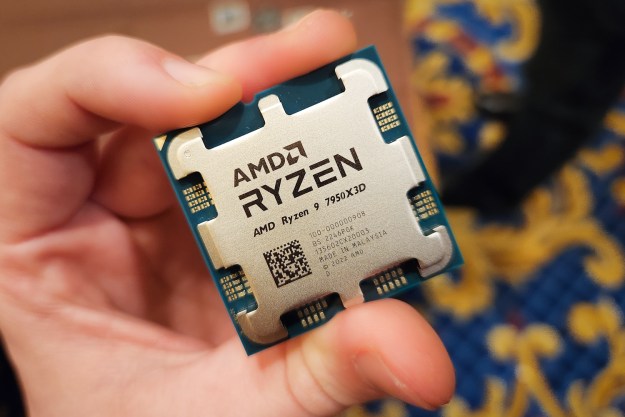Although a few makers (like Dell and VoodooPC) have already announced quad-core offerings, chipmaker Intel officially debuted its quad-core Xeon and Core 2 Extreme processors today, touting improved performance, better reliability, more efficient power utilization, and improved virtualization features. And along with Intel’s introduction came a flurry of announcement of new server and desktop systems featuring the new chips.
"Today’s announcement ushers in another new era in computing," said Paul Otellini, Intel’s president and CEO. in a statement. "The capabilities of quad-core microprocessors will bring new possibilities for science, entertainment and business. I’m incredibly proud of what Intel’s employees have achieved with these new products."
Intel claims the new quad-core Xeon 5300 sets new world records for performance, offering up to 2.5 times the benchmark performance of other high-end processors on the market, and up to 50 percent improvements in real-world performance with the same thermal emissions and cost as Intel’s previous dual-core Xeons, launched just five months ago. Clock speeds for the new Xeon 5300s range from 1.6 GHz to 2.66 Ghz, with front-side busses ranging from 1,066 MHz to 1,333 Mhz with either 80 watt or performance-optimized 120 watt designs. Intel plans to roll out two more Xeons in early 2007: one 50-watt unit for high-density deployment, and a unit designed for single-socket workstations and servers.
For everyday computer users—or rather, for desktop fiends, workstation users, and gamers who need that extra CPU oopmh—Intel’s new quad-fore Core 2 Extreme processor QX6700 claims to be up to 80 percent faster than Intel’s current Core 2 Extreme offerings, and is available at a clockspeed of 2.66 GHz with a front-side bus running at 1,066 MHz, using Intel’s existing 975X Express chipset family. In the first quarter of 2007, Intel plans to introduce a new "Core 2 Quad" processor brand name specifically aimed at the entertainment, multimedia, gaming, and content creation markets.
Applications and other software aren’t likely to see much benefit from quad-core architectures until software is updated to take advantage of the extra processing capability—but that isn’t keeping computer makers from getting quad-core systems on the streets. Computer maker Dell was quick to get out the door with a quad-core gaming system, touting its new XPS 710 with the new QX6700 processor as "the most powerful and expandable consumer desktop." Although the new XPS 710 isn’t likely to offer substantial performance improvement over it’s now-obsoleted dual-core brethren until games and other software are adapted to quad-core architectures, the XPS 710s are available today at $3,699 in Jet Black with a 750 watt power supply, and $3,799 will get you the Special Edition Formula Red with a 1 kilowatt power supply. Computer maker Hewlett-Packard also got out the door early, launching quad-core servers (Proliant and BladeSystem) and workstations, while IBM rolled out System x and BladeCenter servers built on the new quad-core Xeon 5300 chips.
Editors' Recommendations
- What to do if your Intel CPU keeps crashing
- No, Intel isn’t blaming motherboard makers for instability issues
- Intel Battlemage graphics cards: release date speculation, price, specs, and more
- I’ve used Intel CPUs for years. Here’s why I’m finally switching to AMD
- Some Intel CPUs lost 9% of their performance almost overnight


